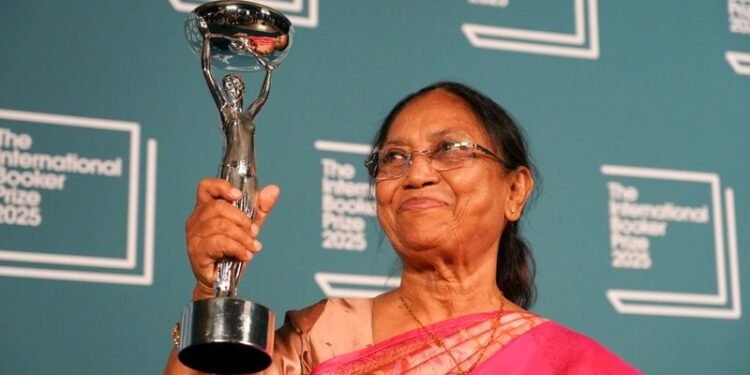“These beautiful, busy, life-affirming stories rise from Kannada, interspersed with the extraordinary socio-political richness of other languages and dialects,” author Max Porter who chaired the jury has been quoted as saying. “It speaks of women’s lives, reproductive rights, faith, caste, power and oppression.”
The collection spans stories written from 1990 to 2023. Beautifully curated by Deepa, the short story collection offers readers the expanse of her work. Vivid, evocative, sharp, witty and rooted in the strangeness of small-town real life, “Heart Lamp” reflect her concerns. The 50,000 pound prize will be shared by the author and the translator.
It was a “great honour’’ Banu said in her acceptance speech. It was “not as an individual but as a voice raised in chorus with so many others”.
Banu is the second Indian writer to win the International Booker prize in this form. Geetanjali Shree won the award in 2022 for “Tomb of Sand”. It is telling that the International Booker prizes for India have been won by women writers—ones who speak their mind fearlessly. Both Geetanjali Shree and Banu have won for languages that have remained largely unexplored for translations. Geetanjali put Hindi, a language that is backed by the government, on the award map for literature, while Banu’s win for Kannada will ensure there will be more translations that will want to dip into its rich cultural legacy. Interestingly, both books have been translated by women.



















